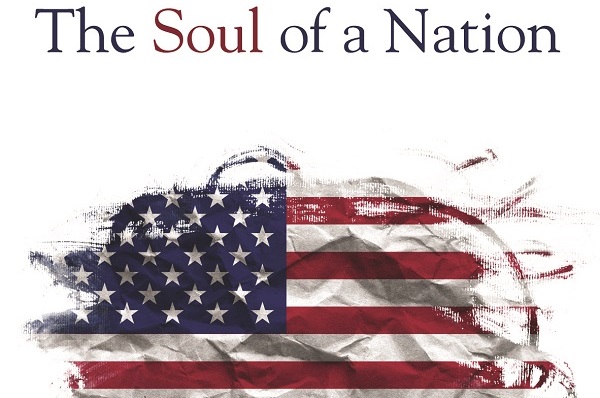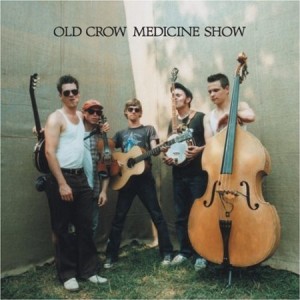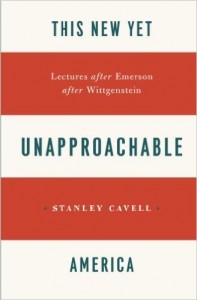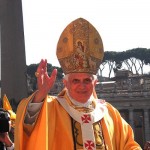
My brother introduced me to the Old Crow Medicine Show perhaps a dozen years ago, when their album O.C.M.S. had just dropped to instant critical acclaim and put them on the cusp of major commercial success. Their song, “We’re All in this Together”, instantly struck me as the best track of the album, and a real song of America [scroll to the bottom of this post, or click on album image to the right below].
 The song is not only American, but also philosophical, historical, theological: perhaps I ought to have said, it is American precisely to the extent it is all three together and at once.
The song is not only American, but also philosophical, historical, theological: perhaps I ought to have said, it is American precisely to the extent it is all three together and at once.
The procedure of the narrative, from seeing, sounding, to seeming – and then to to the certain knowledge of memory, which is found “in between”, thus naming the metaxy as the space of recollection in which we live presently – the presence of the past, the presence of the present, and the presence of the future, as St. Augustine articulates the power of memory to make us who we are in Book X of the Confessions – in the space that is caught between the beginning and the beyond – before us and behind us, as Emerson says in his Experience and as Cavell retells in This New Yet Unapproachable America – takes us through enough of that history, and barely avoids dropping (picking up?) enough names along the way, to make us think of breadcrumbs, or materials strewn on the ground: from the aforementioned “in-between” to the line that harkens to Plato – a line I’ve always understood Plato to mean for us to cross – dividing faith from fear – to the admission of intention in either constructing or collapsing eschatological tension in an explicitly Pauline register with the invocation of ourselves as images in mirrors, and the call for us to “put this thing together” and walk the path that worn-out feet have trod (a thoroughfare for freedom, as in another song of America?), and the appeal to evidence (of fellowship enduring) through the taste of salt in tears.

I will not now insist on hearing “the slow road to freedom” invoke the methodos – the hard road – of philosophy (recalling perhaps the ancient notion of philosophy as a way of life and preparation for death), though I cannot fail to tell you that I hear it.
One of these days, I am going to pull together the essay that has been percolating for more than a dozen years, involving some critical observations of Stanley Cavell in his collection of essays In Quest of the Ordinary, in which Cavell revisits Thoreau’s revision of Emerson’s assertion that the whole history of philosophy is contained in a single American day – an idea I thematize in The Soul of a Nation as placing America in the way of philosophy by placing the projects of civilization and history in America, thereby making America to stand in the way of the history of order as such:
More to this, as in order further to place America in the way of philosophy: wonder—an experience possible only in community—the experience of the community of the divine and the human, is the condition and the constitutive of the experience of order. Socrates’ interpretation of the Delphic oracle is a challenge to the city (one that cannot be known not to be a mortal threat, at least not prior to examination). Thoreau would have America take up Socrates’ challenge to the city—to embrace, rather than indict Socrates’ commitment to philosophy. This is to say, Thoreau would make America to stand or fall on her ability to make good on Socrates’ commitment. Thoreau’s claim to be contemporary with the most ancient philosophers ought to be read in this light. Consider now the following from Emerson’s essay, “Nature”:
“Give me health and a day, and I will make the pomp of emperors ridiculous. The dawn is my Assyria; the sunset and moonrise my Paphos, and unimaginable realms of faerie; broad noon shall be my England of the senses and the understanding; the night shall be my Germany of mystic philosophy and dreams.”
Emerson, the American scholar, here claims that the whole history of civilization, and all philosophy is contained in one American day. This claim, in its turn, establishes the question of America’s relation to philosophy, as one, not of negation, but of assumption. To the extent that there is an America to speak of, it will have in it the whole project of civilization—and in a way that leaves open the question whether America depends on that project, or whether that project depends upon the success of America, and finally, whether these are really alternatives, i.e., really mutually exclusive.
I will have to include the OCMS song, as a sort of test-case, along with the three versions of “America the Beautiful” – though to say how and why were to write the essay. Here is a promise…
Christopher R. Altieri is a philosopher living in Rome, Italy, with his wife, Ester, and their two children. He has been a journalist and news editor at Vatican Radio for ten years, and has translated several works in philosophy, theology, and history. He has also taught comparative religion at the crossroads of political theology and cultural anthropology. He defended his PhD dissertation, which became the book Soul of a Nation, at the Pontical Gregorian University in 2010. For more information, visit his blog at Soul Of a Nation Blog, or find him on facebook.
To explore the latest on the intersection between the soul and politics see the TOP 10: Religion and World Politics Reading List
Please consider making a donation to this blog through the donation button on the upper right side of its homepage. We’re moving to a new place and things will be tight financially for the first few months.
Stay in touch! Like Cosmos the in Lost on Facebook:












